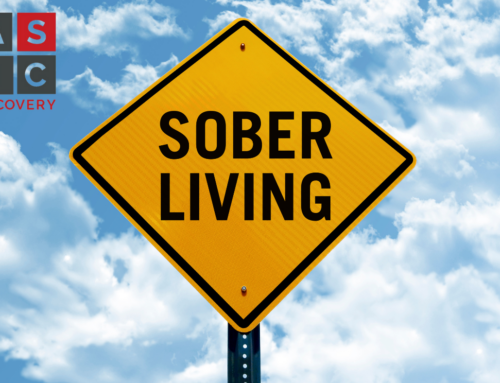There are 4 major stages of recovery from addiction and alcoholism:
- Recognition and acceptance
- Detox and withdrawal
- Rehabilitation and treatment
- Maintenance and relapse prevention
These stages mirror in some ways the stages of addiction. Very few people find themselves immediately addicted to a substance — in most cases, addiction is a long progression through several stages, most of which have extremely flexible boundaries.
Recovery works exactly the same way and has little to do with what you’re addicted to or how you became addicted in the first place — it’s all about what you do once you’re ready to quit.
Whether your addiction is due to your genetic makeup, is something you developed as a way to cope with trauma or mental health issues, or is something that simply came about almost without your noticing, it has no impact on the recovery journey you’ll have to go through.
Everyone has to start in the same place, and while the actual path you take may be very different from your peers, you’ll ultimately end up in the same place.
The Stages of Addiction Recovery
Each stage has its own unique set of challenges and requires different approaches for successful recovery.
By understanding these stages, you can better navigate your path to a healthy and fulfilling life that’s free from addiction.
Stage 1: Recognition and Acceptance
The first stage of addiction recovery is recognizing that there is a problem and accepting the need for change. This is equivalent to Step 1 from the Big Book of Alcoholics Anonymous: “We admitted that we are powerless over alcohol, that our lives had become unmanageable.”
This is almost always the most challenging step as denial is a common defense mechanism for people who are struggling with addiction. For most people, this step takes many years — sometimes decades.
It all depends on how much your disease is affecting you and your life. If you’re not having major consequences, it will probably take you a very long time to even recognize that you have a problem.
The type of substance that you abuse plays a major role here. If your drug of choice is crack cocaine, you’re much more likely to run into consequences. It’s an illegal drug that can quickly get you into legal trouble. It’s also very common for users to spend over $1,000 in a single night, which means money problems usually crop up quickly.
Spending that kind of money can lead to marital problems. You can get kicked out of your home and lose your car as a result of not paying your bills. Most users stay up for days at a time, which means missing work, which means losing their jobs.
People who are addicted to crack cocaine often end up jobless and homeless in a very short period of time.
On the other hand, someone who is abusing marijuana, especially in a place where it’s legal, might take decades before they run into problems.
On top of that, the problems might be very minor for a long time — a spouse who gradually gets more and more annoyed with you for smoking all the time, a child who grows distant because you’re always high, a boss that never fires you but also never promotes you.
It’s very common for people who are struggling with marijuana addiction to not even try to get help until their 50s or 60s barring a run-in with the law.
It often takes a significant event like getting arrested or an intervention from loved ones to break through the walls of denial and initiate the recovery process.
During this stage, it’s crucial that you confront the reality of your addiction and acknowledge the negative impact it has had on your life. This self-awareness lays the foundation for the subsequent stages of recovery and opens the door to seeking professional help and support.
If you don’t believe you have a problem, if you don’t accept that you need help, you’ll never take the next step — actually quitting.
Stage 2: Detoxification and Withdrawal
Once the decision to overcome addiction has been made, the next stage is detoxification (detox) and withdrawal. You have to stop using any substances, either gradually, in a process called tapering, or all at once.
When you’re no longer ingesting the drug, your body may go through withdrawal, depending on the drug.
When you start abusing drugs heavily, many systems in your brain are affected — it literally changes how your brain works and alters your homeostasis, which is a state of biological stability that your body works to achieve.
This means that levels of natural proteins and neurotransmitters in your brain change. Feedback loops alter to include the regular presence of the drug. The way your brain uses the basic building blocks of life fundamentally alters, creating a new homeostasis.
Taking away drugs, even gradually, removes a chemical that your brain has not just come to expect but to use. This causes cascading effects, where one system after another becomes imbalanced until your homeostasis starts to fall apart.
For example, the reason you may shiver uncontrollably and feel alternatively hot and cold during opioid withdrawal is that your body can no longer effectively tell what your body temperature should be.
This isn’t the case for every drug. Some drugs, like cocaine, do not have a physical withdrawal. However, others, like alcohol, may take weeks or even months to withdraw from while your body works to restore homeostasis.
In a detox or rehab facility, you’ll be able to safely let your body purge itself of your drug of choice. They’ll help you manage the physical and psychological symptoms that occur during the withdrawal process.
Detox can be a challenging and uncomfortable experience, which is why so many people choose to go to detox or rehab instead of trying to go through it “cold turkey.”
Withdrawal symptoms can vary depending on the substance and the individual, but common symptoms include nausea, sweating, anxiety, and insomnia.
Having medical supervision during detox is highly recommended so that healthcare professionals can provide you with the support and medications you need to manage withdrawal symptoms safely.
While some drugs are safe to detox from, others are very dangerous — withdrawal from alcohol and benzodiazepines can be deadly without medical support.
Once you’ve safely detoxed, you can focus on treatment, which involves much more than just getting clean and sober.
Stage 3: Rehabilitation and Treatment
It’s most common to go to a detox facility for a few days, often no more than 10, and then go on to a rehabilitation (rehab) facility for another 20 to 35 days. Rehabs focus on addressing the underlying causes of addiction. They show you how to develop healthy coping mechanisms to prevent relapse.
Rehab programs can take various forms, including inpatient (what most people think of when they think of “rehab”) or outpatient treatment.
Regardless of whether you choose to stay at a rehab or only go for a few hours a day, you’ll probably have both individual and group therapy, though there may be other types of classes, like:
- Yoga
- Trauma therapy
- Guided meditation
- Anger management
- Grief therapy
- Self-care
You may also see a psychiatrist and be prescribed mental health medication. If you’re still detoxing once you go to rehab (not uncommon with a drug that takes a long time to detox from, like Klonopin), you may have a nurse who dispenses your detox medication.
The goal of rehab is to give you the tools and skills you need to maintain long-term sobriety and lead a fulfilling life. Most rehabs will introduce you to at least one sobriety program, like the 12 Steps of Alcoholics Anonymous or SMART Recovery.
Therapy plays a crucial role in this stage — it helps you understand the root cause of your addiction, identify triggers, and develop effective strategies to manage cravings and prevent relapse.
It also provides a safe space away from alcohol, drugs, and triggers for you to explore and heal from any underlying trauma or mental health issues that may have contributed to your addiction.
Stage 4: Maintenance and Relapse Prevention
The final stage of recovery from addiction is maintenance and relapse prevention. This stage is a lifelong process that requires ongoing commitment and effort.
While you may have successfully completed detox and rehab, the risk of relapse is always present — relapse rates for substance abuse have been found to be between 40%–60%.
For most rehab and intensive outpatient programs, maintenance usually means actively participating in support groups or aftercare programs to stay connected with a strong support system of people who understand the challenges of recovery.
It often also involves implementing healthy lifestyle changes, such as regular exercise, balanced nutrition, and stress management techniques.
Relapse prevention strategies are crucial during this stage because they help you identify warning signs and develop effective coping mechanisms to navigate triggers and cravings.
It’s important to remember that relapse does not mean failure — it’s a setback that can be a valuable learning opportunity and a chance to strengthen your commitment to recovery.
Overcoming Challenges in Each Stage
While the stages of recovery provide a roadmap for the journey to sobriety, it’s important to acknowledge that each stage presents its own unique challenges. Overcoming these challenges requires resilience, patience, and a strong support system.
In the recognition and acceptance stage, your biggest hurdle is going to be yourself and your own denial. It’s also possible that people around you will be in denial, especially if they’re stuck in the cycle of addiction too.
Denial and fear of change can be powerful obstacles to overcome. It’s crucial to surround yourself with supportive and understanding people who can provide encouragement and guidance during this challenging time.
During detox and withdrawal, you might experience intense physical and psychological cravings for your drug of choice, and the discomfort and pain of your withdrawal symptoms might be overwhelming.
Many people fail to move past this stage because their withdrawals are too intense. Seeking professional help is essential — you might never get past detox without someone giving you medical treatment for your symptoms.
Rehab and treatment can be emotionally demanding because, once you’re fully sober and have to confront the underlying causes of your addiction, you might not like what you see, and you might be terrified of what you have to do to get past your addiction.
It’s usually pretty difficult to face past traumas and address unresolved mental health issues. Trauma and grief therapy could require years of hard work, and the work could be incredibly painful, triggering you to want to use your drug of choice.
Mental health treatment is rarely simple and usually requires a long process of testing medications one by one until you find one that works, a process that can also be multiple years long.
While you’ll most likely have access to a therapist or counselor while you’re in rehab, their job is just to get the ball rolling, to help you get used to the idea of working through painful issues while sober.
You’ll have to find a long-term therapist and/or psychiatrist once you leave rehab — most people with unresolved trauma, grief, and/or mental health issues relapse if these problems stay unresolved.
Maintenance and relapse prevention require ongoing commitment and discipline. Because the risk of relapse is always present — alcohol and drugs are freely available just about anywhere in the world — you’ll most likely face triggers or temptations that challenge your sobriety.
This is where it’s more important than ever to set up a program of sobriety once you’re out of rehab.
Most people who get involved in some sort of program, 12-step-based or otherwise, start to see a therapist regularly, get on the right medications, and change their habits, have a good chance of staying sober.
Addiction Is a Challenge, but It’s Possible to Recover
Overcoming addiction is a challenging but ultimately rewarding journey. By understanding the stages of addiction recovery and the challenges that may arise in each stage, you can navigate your path to sobriety with greater resilience and confidence.
If you’re considering getting sober or are in a detox or rehab facility and you’re thinking about getting into a sober living or IOP program to augment your recovery, we can help.
At ASIC Recovery, our Intensive Outpatient Program (IOP) is dedicated to helping you develop healthier coping skills and build a supportive recovery network so that you can achieve long-term sobriety.



